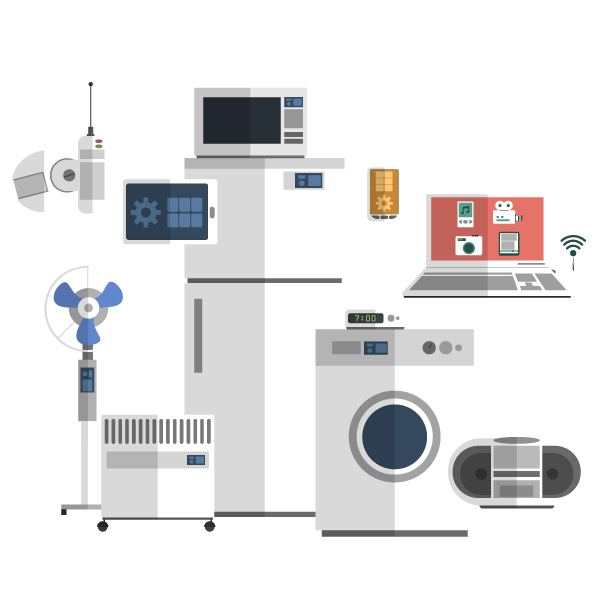In the realm of home appliances, determining which one is the most essential can be a complex task, influenced by various factors such as personal needs, household size, and lifestyle. An essential appliance is not only a practical necessity but also plays a crucial role in enhancing daily life. This article explores the concept of essential appliances, evaluates the most indispensable ones, and provides insights into choosing the best fit for your home.
- Defining an Essential Appliance
An essential appliance is defined by its utility, frequency of use, and impact on daily living. It should provide significant benefits, solve common problems, and contribute to the overall efficiency of household tasks.
1.1 Utility and Functionality
- Daily Use: The appliance should be used regularly and provide significant value in daily routines.
- Problem Solving: It should address common household needs and simplify tasks, improving convenience and efficiency. 1.2 Impact on Lifestyle
- Time Savings: An essential appliance often saves time by automating or streamlining tasks, allowing for a more efficient lifestyle.
- Quality of Life: It should enhance comfort and well-being, making everyday activities more manageable and enjoyable.
- Top Contenders for the Most Essential Appliance
Several appliances stand out as essential due to their functionality and impact. Here’s a closer look at the top contenders.
2.1 Refrigerator
- Utility: The refrigerator is a cornerstone of modern kitchens, crucial for food storage and preservation. It prevents spoilage and extends the shelf life of perishable items.
- Impact: By maintaining the freshness of food, a refrigerator supports healthier eating habits and reduces food waste. It also offers convenience by allowing bulk buying and meal prepping. 2.2 Washing Machine
- Utility: A washing machine simplifies the laundry process, saving time and effort compared to hand washing. It offers various cycles and settings tailored to different fabrics and stains.
- Impact: It provides significant convenience and efficiency in managing household laundry, reducing the time and labor involved in maintaining clean clothes. 2.3 Air Conditioner
- Utility: In regions with extreme temperatures, an air conditioner is essential for maintaining a comfortable indoor environment. It regulates temperature and humidity, enhancing overall comfort.
- Impact: It contributes to better health by reducing heat-related stress and improving sleep quality. An air conditioner can also protect home furnishings from heat damage. 2.4 Microwave Oven
- Utility: The microwave oven offers quick and efficient cooking and reheating capabilities. It is ideal for preparing meals in a fraction of the time required by conventional cooking methods.
- Impact: It supports busy lifestyles by providing a fast solution for meal preparation and heating leftovers, making it a valuable tool for quick and convenient cooking.
- Evaluating the Most Essential Appliance
When choosing the most essential appliance for your home, consider factors such as household needs, frequency of use, and overall impact.
3.1 Household Needs
- Family Size: Larger families may prioritize appliances that handle higher volumes, such as a refrigerator with more storage capacity or a washing machine with a larger drum.
- Lifestyle: Consider appliances that align with your lifestyle. For example, if you often entertain guests, a high-capacity refrigerator might be more valuable. 3.2 Frequency of Use
- Daily vs. Occasional Use: Appliances used daily, such as refrigerators and washing machines, are often considered more essential than those used occasionally. Assess how often you use each appliance and its role in your daily routine. 3.3 Overall Impact
- Time and Effort Savings: Choose an appliance that significantly reduces time and effort in household tasks. Appliances that streamline daily chores or provide significant convenience are often deemed more essential.
- Comfort and Health: Evaluate how the appliance contributes to your comfort and well-being. Appliances that enhance living conditions or address health concerns are highly valuable.
- Making the Final Decision
Selecting the most essential appliance involves weighing the benefits of each option based on your specific needs and preferences.
4.1 Budget Considerations
- Cost vs. Value: Consider the cost of the appliance relative to its value and benefits. Higher-priced appliances with advanced features may offer greater convenience and efficiency.
- Long-Term Investment: Evaluate the long-term value of the appliance, including durability, energy efficiency, and potential savings on utility bills. 4.2 Brand and Quality
- Reputation: Choose reputable brands known for reliability and quality. Research consumer reviews and ratings to ensure the appliance meets high standards.
- Warranty and Support: Consider appliances with comprehensive warranties and reliable customer support, providing peace of mind and protection against potential issues. Conclusion
Determining the most essential appliance for your home involves a careful evaluation of utility, impact, and personal needs. While appliances such as refrigerators, washing machines, air conditioners, and microwave ovens each offer significant benefits, the ultimate choice depends on how well the appliance aligns with your lifestyle and household requirements. By assessing factors such as frequency of use, overall impact, and budget considerations, you can make an informed decision and select the appliance that provides the greatest value and convenience for your home.

